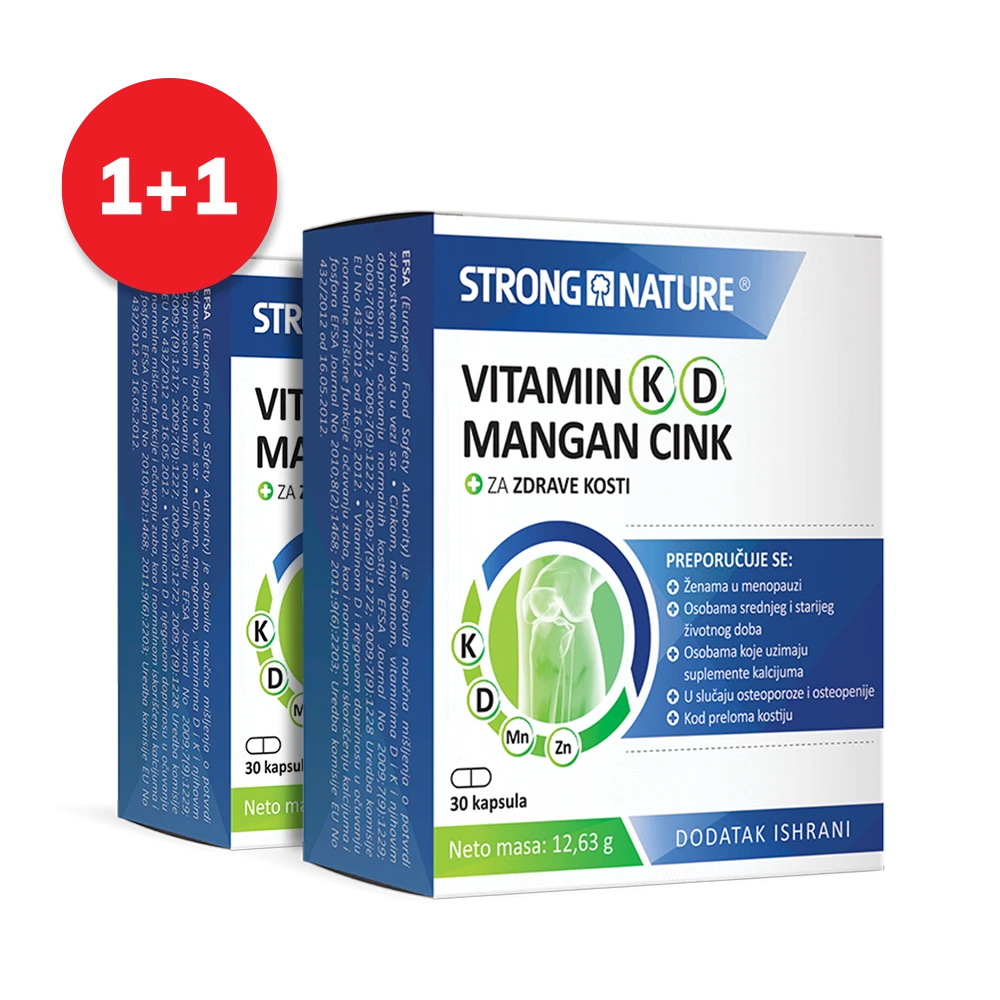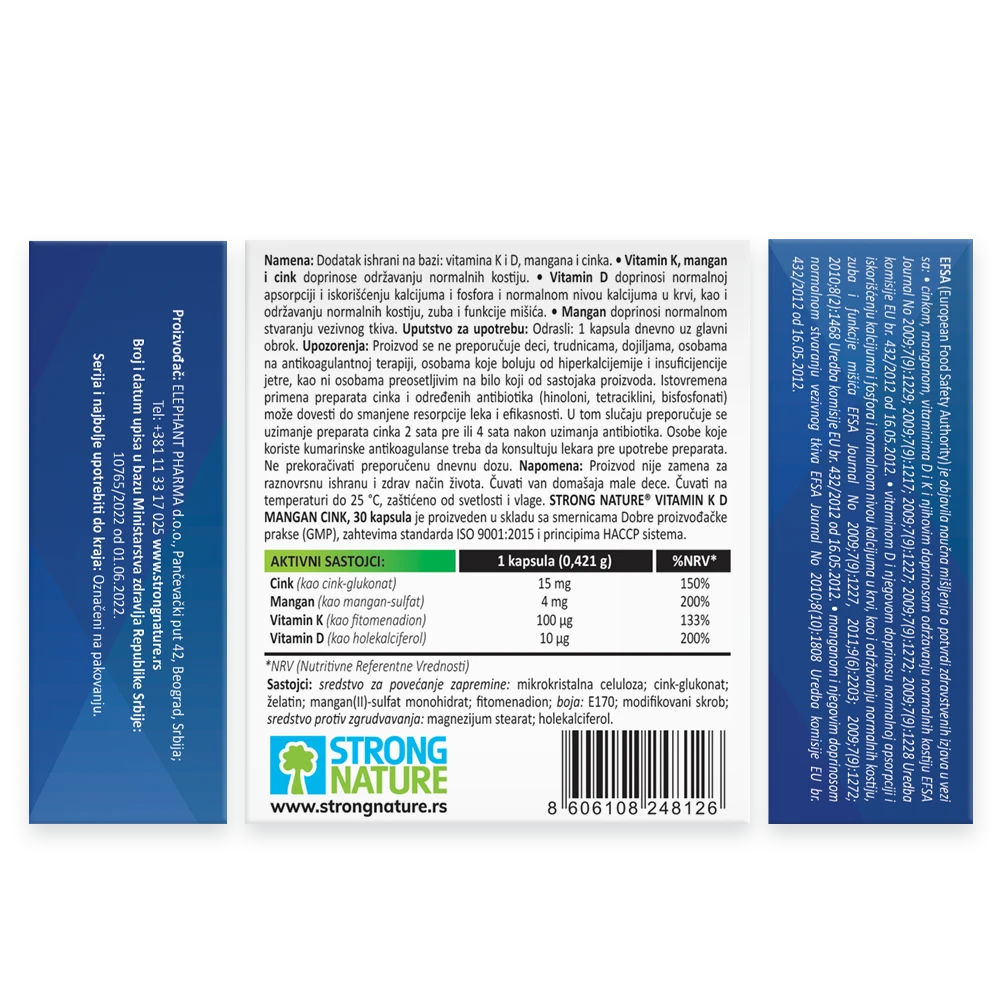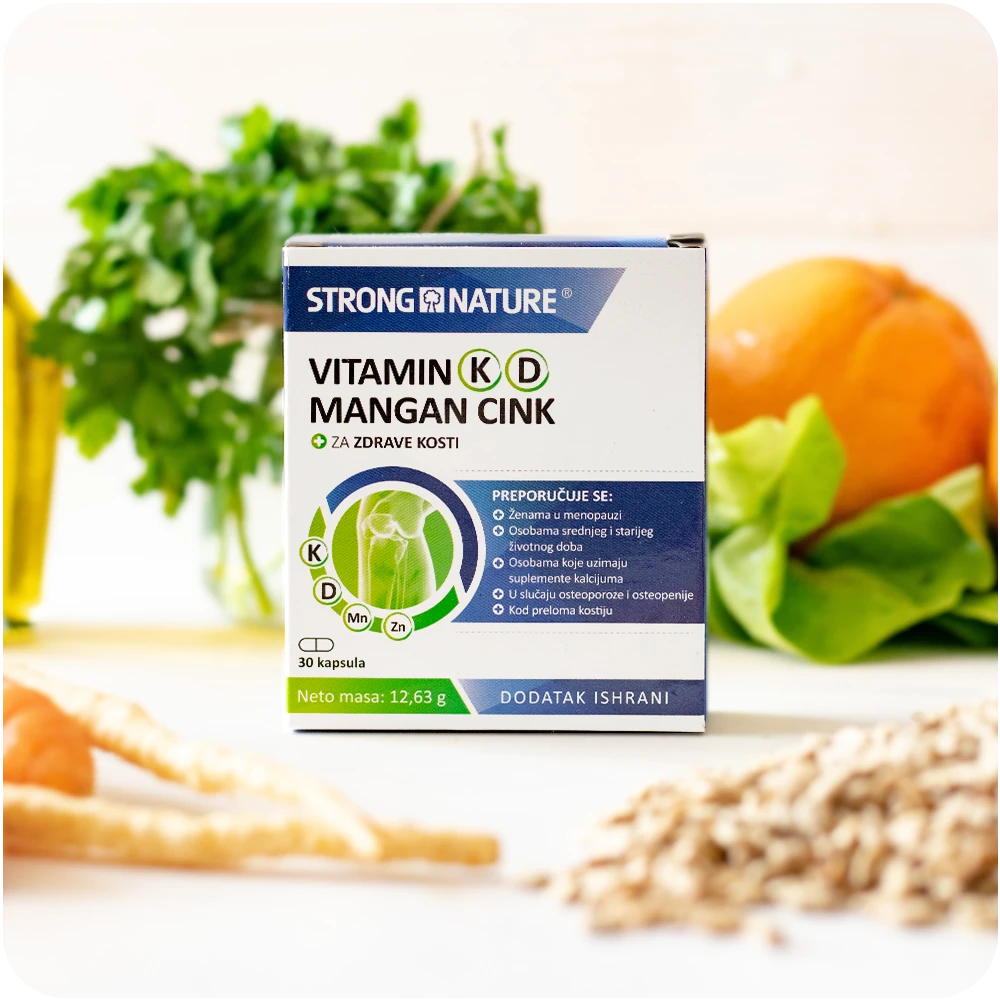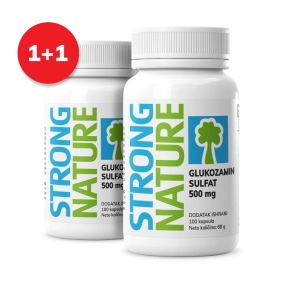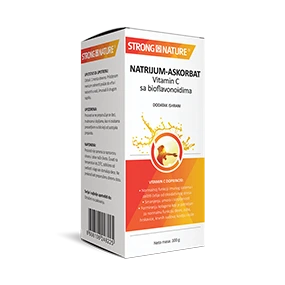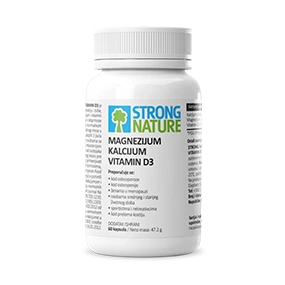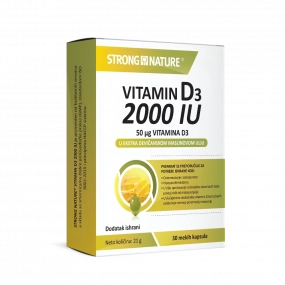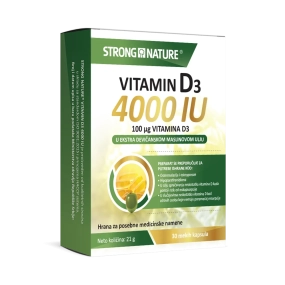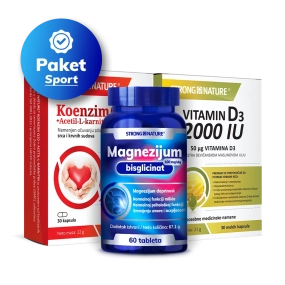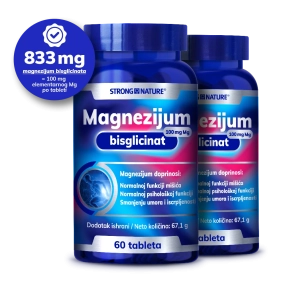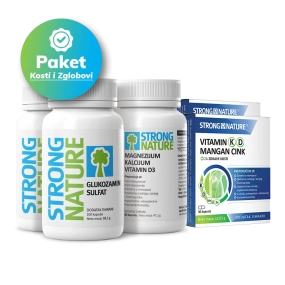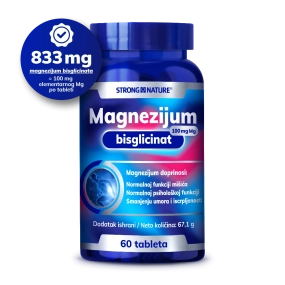Vitamin D is essential in the process of calcium absorption from food. When the body lacks vitamin D, calcium absorption from food will be impaired, and the body will draw calcium from the bones. Reduced calcium concentration in bones will cause rickets in children, and in adults, it will cause osteomalacia (softening of the bones) and osteoporosis (loss of bone mass). Calcium gives strength to bones, and its deficiency increases the risk of fractures and other bone and joint system injuries. Manganese participates in the processes of cartilage formation/renewal, collagen, and other connective tissues. Studies have shown that the use of manganese combined with calcium, vitamin D, magnesium, zinc, boron, and copper can improve bone mass in women with weak bones, which is important in the treatment of osteoporosis and other bone and joint system diseases. Vitamin K plays a very important role in the process of bone mineralization. In older individuals, vitamin K deficiency leads to osteoporotic changes in the bones. Vitamin K is necessary for the synthesis and modification of osteocalcin, a protein that binds calcium. After being modified, osteocalcin is able to bind calcium, making vitamin K an initiator of bone mineralization. Zinc is one of the most important minerals in the human body. It is involved in numerous metabolic processes, and its deficiency can lead to the onset and development of serious diseases. Zinc contributes to the maintenance of healthy bone quality. It is an essential nutrient, and our body does not synthesize it, meaning we must obtain it through diet. It is present in small concentrations in the body, and to avoid deficiency, it is necessary to regularly intake it through diet or supplementation.
 English
English

